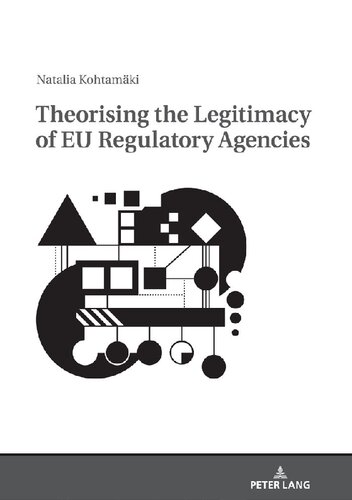

Most ebook files are in PDF format, so you can easily read them using various software such as Foxit Reader or directly on the Google Chrome browser.
Some ebook files are released by publishers in other formats such as .awz, .mobi, .epub, .fb2, etc. You may need to install specific software to read these formats on mobile/PC, such as Calibre.
Please read the tutorial at this link: https://ebookbell.com/faq
We offer FREE conversion to the popular formats you request; however, this may take some time. Therefore, right after payment, please email us, and we will try to provide the service as quickly as possible.
For some exceptional file formats or broken links (if any), please refrain from opening any disputes. Instead, email us first, and we will try to assist within a maximum of 6 hours.
EbookBell Team

4.1
10 reviewsThe main objective of the book is to answer the question of the proper theoretical justification for the regulatory agencies which are an important component of the EU institutional structure.
They are independent bodies appointed by the European Commission in various specialised fields of the EU market, such as food safety, pharmaceuticals or financial supervision, in which the Commission itself – due to the complexity of the sector-specific regulation – is not able to prepare expertise alone. The agencies are therefore expert institutions, which form administrative support to the EU authorities and the member states. Despite the fact that the agencies are already an irremovable element of the EU decision-making and rulemaking processes there are still justified doubts about their legitimacy. The book offers an in-depth analysis of the current theoretical concepts surrounding the questions of empowerment, rightfulness and legitimacy of EU agencies’ activities.
"The monograph is a very interesting read. The author is a very competent fashion deals with the objectives of her research and delivers a solid book. She persuasively touches on a plethora of pertinent legal and theoretical issues associated with EU agencies and their legitimacy. Bearing in mind the current discourse in this respect this book is very timely."
Professor Adam Łazowski, School of Law, University of Westminster